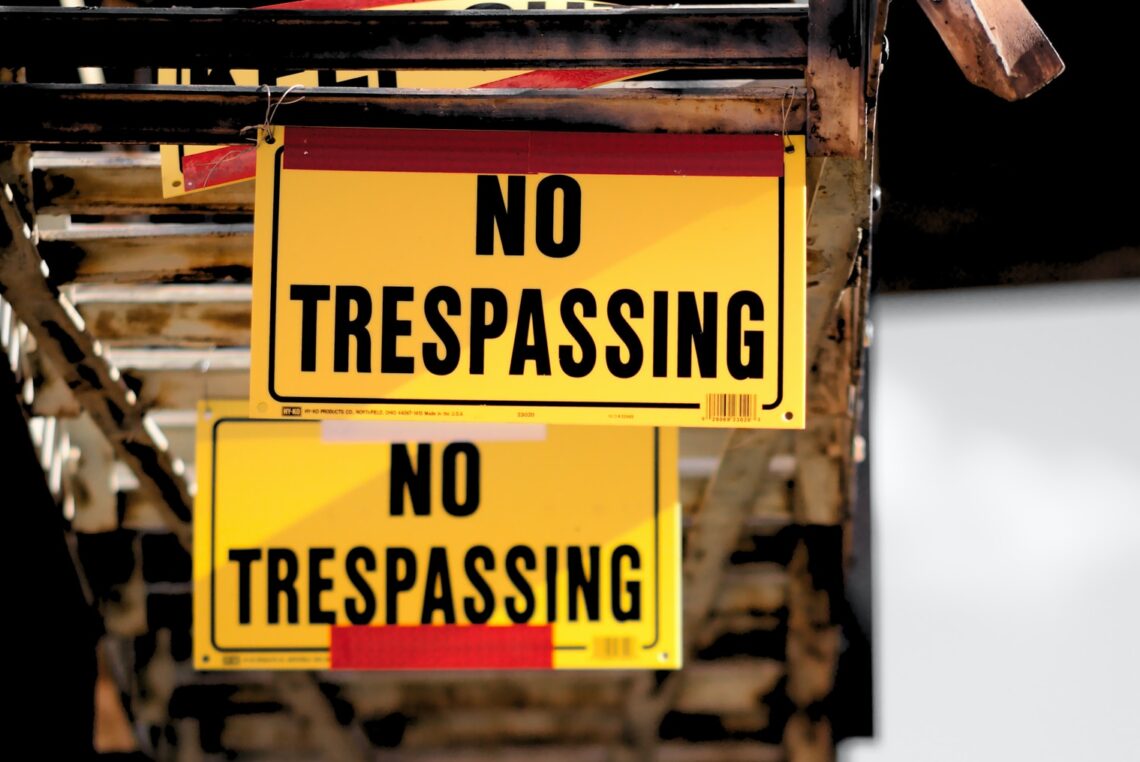Boundaries in relationships are rules that you have about what people can or cannot do to you. Boundaries keep us safe and happy. Most people think of boundaries as commands – “You are not allowed to hit me” or “You are not allowed to talk to me like that.” But that is only half of the boundary. The other part is what YOU are going to do if (and when) they cross that boundary.
Let’s give an example. Let’s say you don’t want your husband to yell at you. So your boundary might be “If you yell at me, then I am going to leave the room (or the house)”. Notice that the boundary isn’t “You aren’t allowed to yell at me.” You have no control over your husband (or anyone else) so you can’t enforce a boundary like that. Your husband still might yell at you. But the boundary says what YOU are going to do to keep yourself safe. Your boundary says what you will do if that boundary is crossed.
It’s your job to enforce the boundary.
A lot of times we feel like it is the other person’s job to respect our boundaries. But that’s wrong. We have no control over other people. So how are we going to get them to respect and honor our boundaries? It’s OUR job to enforce the boundary.
When making boundaries, it’s important that you are committed to following through on what you will do if the boundary is crossed. If you don’t follow through, you are sending a message that “I don’t really mean what I say. Go ahead and do whatever you want.”
What would be some healthy boundaries?
Most boundaries center around our physical or emotional safety. And even though you might not have thought about what your boundaries are, you probably have some unconscious boundaries. For example, if a stranger comes up to you and tries to hit you, you will probably react. You will run away or hit them back. This means you have an unconscious boundary that says “If you hit me, I will do this.”
A boundary doesn’t have to be about your physical safety though. You could decide to have a boundary for anything you want! For example, let’s say you really don’t want your in-laws to come over unannounced. You could tell them “From now on, I don’t want you to come over without telling me one day in advance. And if you do come over without letting me know a day in advance, I won’t let you in.” Now your in-laws are probably going to be upset, but that’s okay.
I will go over some more examples at the end of this article.
It’s okay for the other person to be angry
Now, one thing to remember with enforcing boundaries is that it is okay for the other person to feel angry. If you enforce your boundary, they will probably be upset. That is okay. Other people’s emotions are not problems for you to solve. Let me repeat that. Other people’s emotions are not problems for you to solve. Along those same lines, you can’t control other people’s emotions. You can’t make someone happy. You can’t make someone angry. They choose to be happy or angry.
So if you are serious about having a boundary around something that is important to you, be prepared for the other person to be mad about it. Them being mad doesn’t mean the boundary is unhealthy. The other person being mad doesn’t mean you shouldn’t enforce your boundary or that you should change your boundary. You are in charge of taking care of you. No one else is in charge of taking care of you.
It’s okay for your kids to be mad when you enforce a boundary. It’s okay for your spouse to be mad when you enforce a boundary.
Putting Your Health Before Others
Boundaries are all about honoring your needs and prioritizing your health and wellbeing. You don’t need to please everyone else and put everyone else’s needs and wants before your own. You are worth taking care of. And no one can take care of you better than you! It’s not your spouse’s job to take care of you. It’s your job.
When I realized this, I have been so much happier. I listen to myself. I prioritize my needs. I take care of myself first so that I can better take care of other people.

Boundary Examples
Here are a few examples of boundaries. With these examples, I’m not saying that these SHOULD be your boundaries, I just want to give some examples so that you can think of possible boundaries you would like to have.
Marriage
There could be all sorts of boundaries in a marriage or serious dating relationship.
“If you yell at me, then I will leave the room.”
“If you have sex with someone else, then I will end this relationship.”
You could also decide that there needs to be a boundary around your money. “If you keep making large purchases without asking me, then I will make separate bank accounts so that I can have full control over part of the money.”
Remember, there is no ONE way to have a healthy relationship. So whatever boundaries work for you are great!
Roommates
What about roommates? Maybe you want to make a boundary around doing the dishes. “If you don’t do your dishes, then I will place your dishes on the back patio.”
A legal rental agreement is really just an official statement of boundaries between the landlord and the renter. “If you don’t pay your rent, I will evict you from the premises.”
Parenting
What are your boundaries with parenting? One of mine is “If my child hits me, I will escort them to their room.” In this regard, boundaries are synonymous with discipline and the rules that you have at your house.
Friends
Do you want to have any boundaries around your friends? I recently decided that I should set some boundaries about what I talk about with my friends. For example, “If you talk about this subject, I will hang up the phone (or leave the party) etc.” Some subjects I just don’t want to talk about.
Social Media
Do you have any boundaries for your relationships on Social Media? You could have a boundary that if someone starts fighting with you over social media, then you will not respond.
Parents and In-laws
Maybe after moving away from your parents, you have decided there are certain topics you shouldn’t discuss. Or maybe you want to make a boundary about gifts. Some people get annoyed when grandparents give lots of toys to the grandchildren as gifts. Perhaps you can explain that you would rather have the grandparents give money or an experience. You could decide that if they give you toys, you will throw them away. (Note – you don’t always have to tell the other person about your boundaries. You just enforce it and keep yourself safe and happy.)
Hopefully this list gets your brain thinking about what boundaries you want to have and how you will enforce them! Good luck!




No Comments